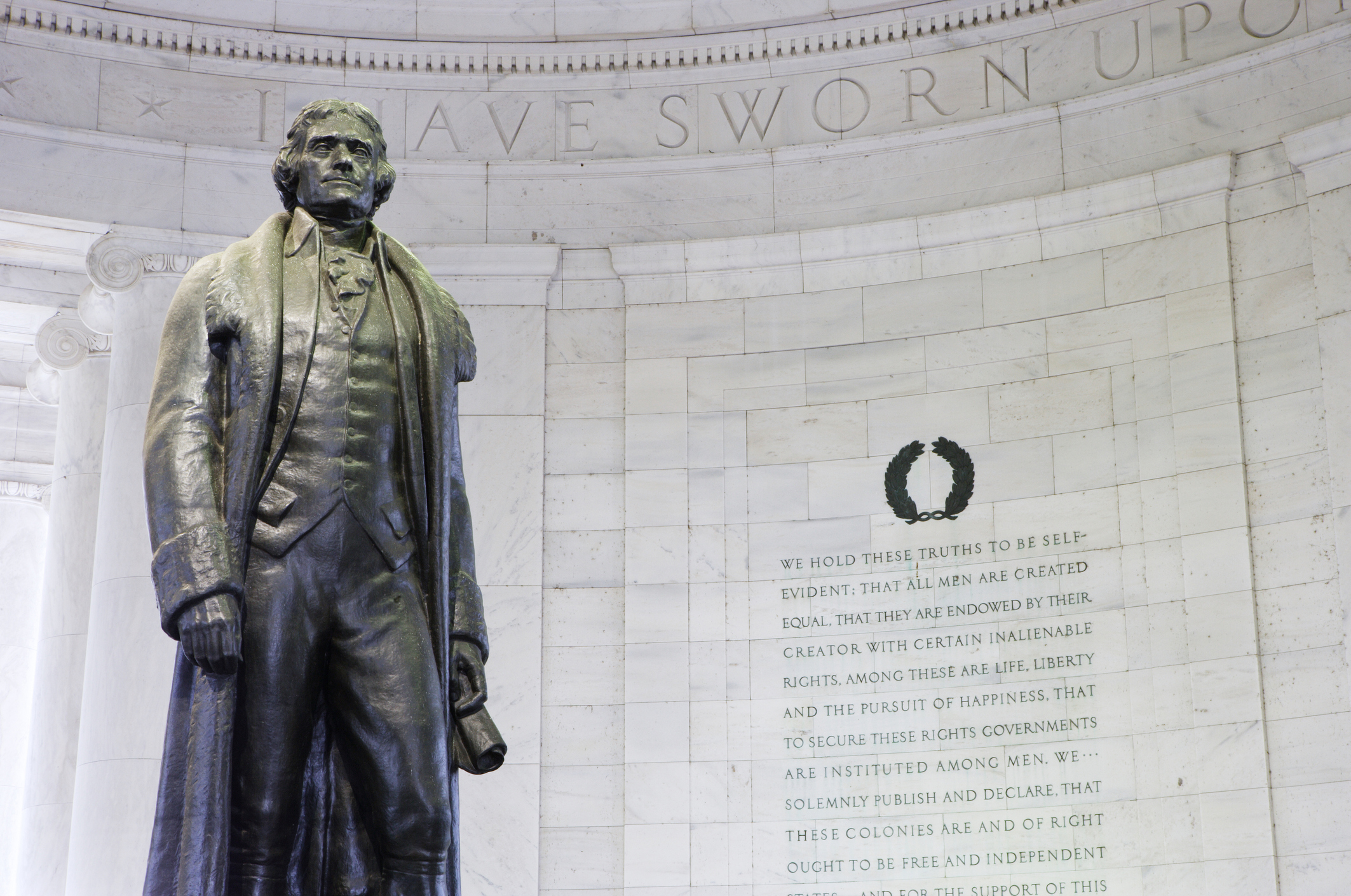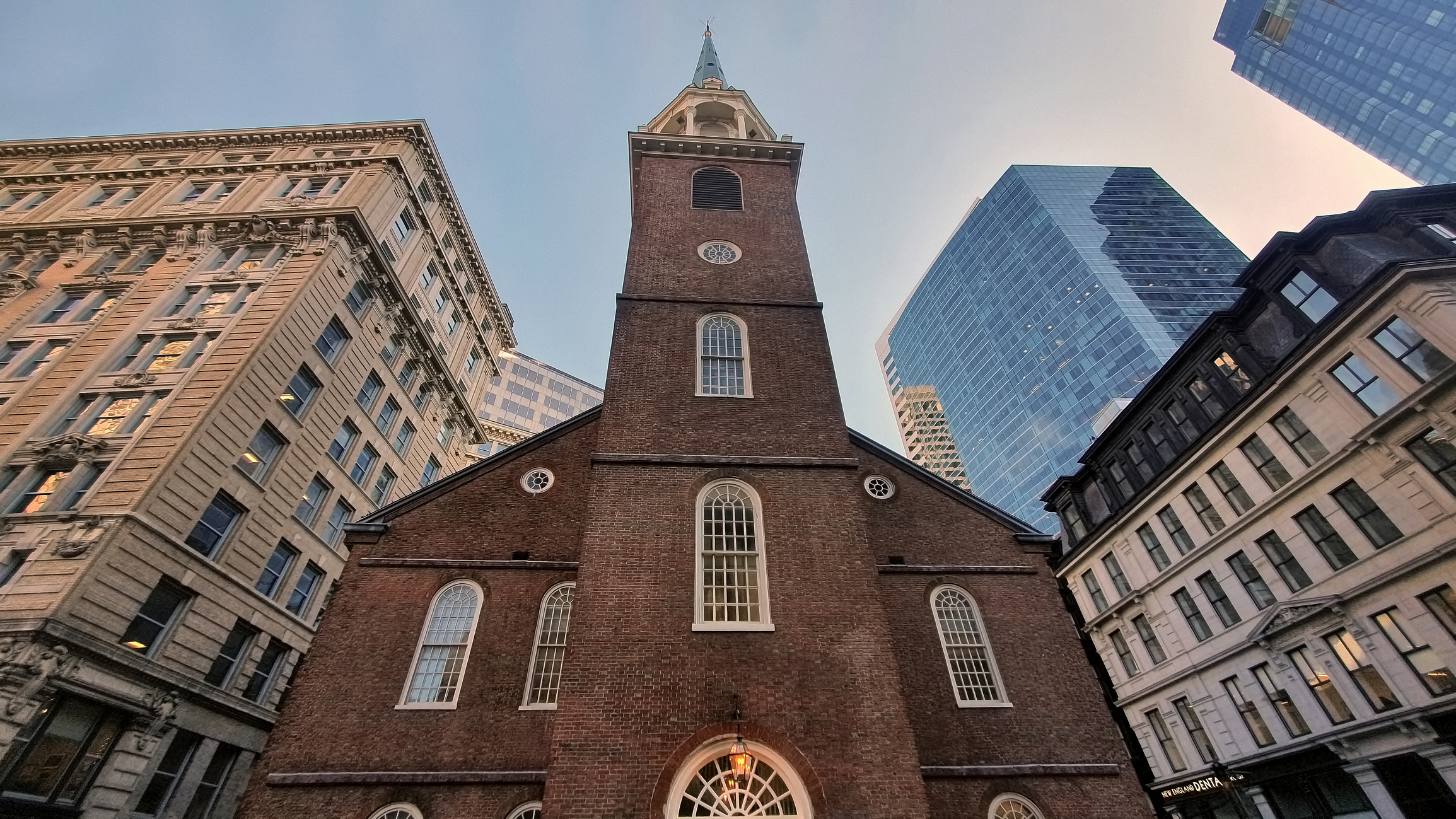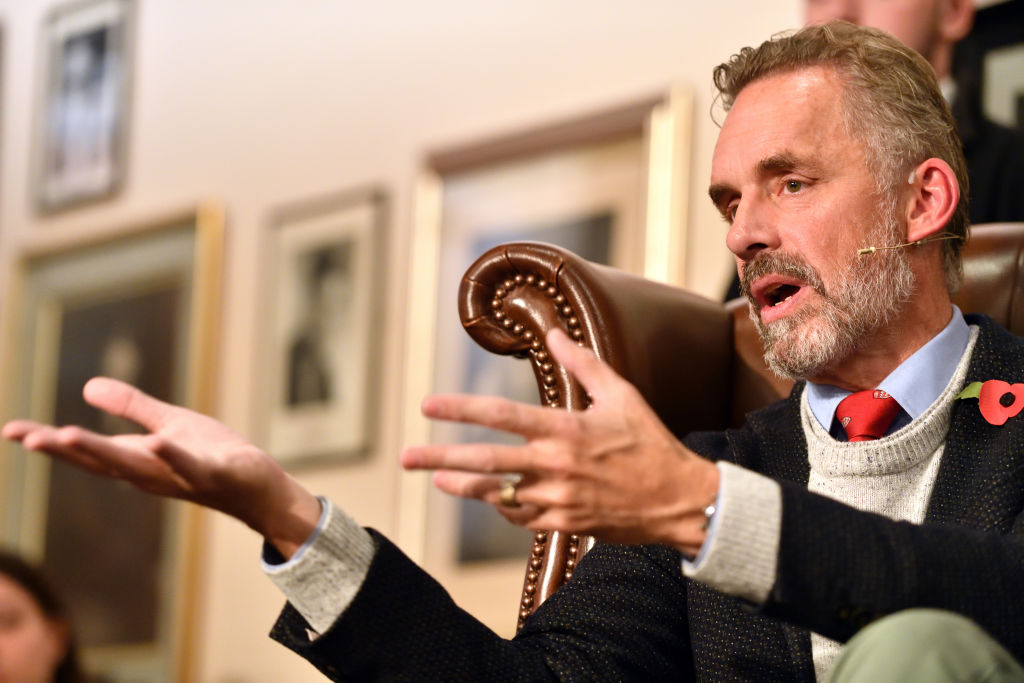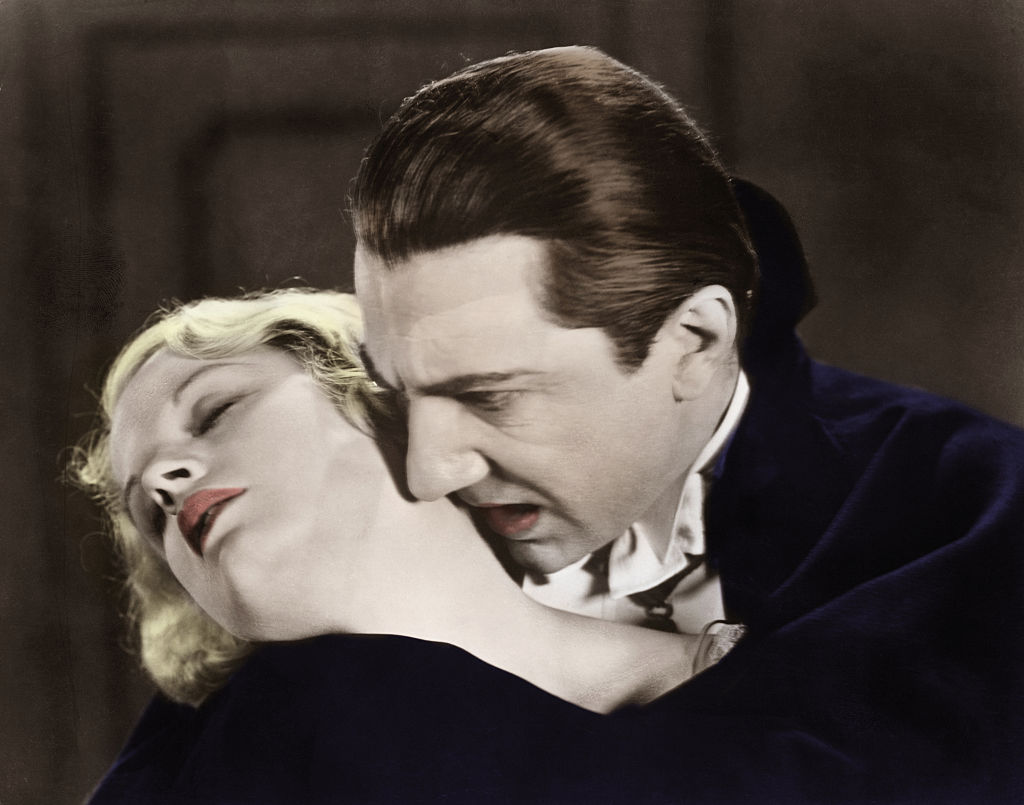The Biden Administration asks whether we should have a First Amendment.
Thomas Jefferson, Christian Nationalist?

Our rights had to come from somewhere.
Politico’s Heidi Przybyla recently caused a ruckus when she declared that Christian nationalists are people who “believe that our rights as Americans and as all human beings do not come from any earthly authority. They don’t come from Congress, from the Supreme Court, they come from God.”
Przybyla tried to walk her comments back, but only somewhat, leading many to suspect that they reveal what she truly thinks. Her restatement calls them “clumsy words,” noting that in the Declaration of Independence, for example, our rights come from our Creator, not the government. Moreover, she notes that “many people have views about our rights as Americans that would coincide with those of many of our nation’s founders.”
The formulation suggests Przybyla is not one of those people. In other words, she thinks they are mistaken, and that was why she spoke as she did. Moreover, her assertion that “The Constitution protects freedom of worship. So, too, does it enshrine the separation of church and state,” is hardly an accurate account. “Freedom of worship” is not in the First Amendment. The First Amendment prohibits Congress from making a law “respecting the establishment of religion, or prohibiting the free exercise thereof.” And the Fourteenth Amendment, according to fairly well settled doctrine, applies those rights to all levels of government in the U.S. But the “free exercise” of religion is rather more than mere “freedom of worship” and separation of church and state, a turn of phrase that does not appear in America until Jefferson penned it in 1802, is merely one means of disestablishment.
Moreover, it is important to understand the recognition that rights, if they truly are human rights, come from something other than mere human invention. If they are merely human invention, then they are arbitrary. Only if there is some standard which we did not invent by which to judge what is and what is not justly deemed a right is the category of rights not arbitrary. That standard need not be the Christian God, but it certainly must be something greater than the will of Congress, the courts, or another earthly power. If rights are merely the invention of government, there is no such thing as a truly fundamental right, unless perhaps some rights are “fundamental” only so long as we hold them to be such.
What about Jefferson? If believing that rights come from God makes one a Christian nationalist, then Jefferson was a Christian nationalist, a formulation that would almost certainly have surprised Jefferson. In the conventional sense, Thomas Jefferson was not what most would call a Christian. He, for starters, denied the truth of the Trinity, declaring that “it is too late in the day for men of sincerity to pretend they believe in the Platonic mysticisms that three are one, & one is three.” And few Christians would essentially take an X-Acto knife to the Gospels, separating out the parts he believed were real and those that were fake. It is worth noting that Jefferson believed the parts he abstracted represented a profound moral teaching.
Jefferson was, of course, a fervent believer in the rights of conscience, and a forthright opponent of religious establishments. In his Notes on the State of Virginia he argued that “the rights of conscience we never submitted, we could not submit. We are answerable for them to our God. The legitimate powers of government extend to such acts only as are injurious to others. But it does me no injury for my neighbour to say there are twenty gods, or no god. It neither picks my pocket nor breaks my leg.” Having said that, Jefferson did not think religious beliefs were irrelevant to establishing and sustaining a free republic, holding that the republic was dependent upon having a citizenry who believed in God, not gods. Later in the same work, discussing slavery, he declared, “can the liberties of a nation be thought secure when we have removed their only firm basis, a conviction in the minds of the people that these liberties are of the gift of God? That they are not to be violated but with his wrath? Indeed I tremble for my country when I reflect that God is just: that his justice cannot sleep for ever.”
The most logical explanation of the apparent inconsistency between not caring if someone believed in zero or multiple gods, and also believing that the “only firm basis” for our liberties is belief in God, is that it is, per Jefferson, no danger if some Americans believe in no or “twenty gods,” but it is a problem if either belief, or other like beliefs, become common. “The people” in general need to believe that their liberties are the gift of God, not to be violated without his wrath—and His wrath, Jefferson was suggesting, would surely come if Americans did not work to end slavery pronto. If some handful of Americans disagreed, that was nothing to worry about. But if that became common, he suggested, it would likely be a problem. In other words, Jefferson feared that the rights of conscience, and our liberties in general, would not be secure among a people who did not think they are answerable to God for their actions, and who doubted that there is a Creator who ordered nature.
This reading of Jefferson comes through when we look at his signal achievement regarding religious liberty. Jefferson was the proud author of Virginia’s bill “Establishing Religious Freedom.” Note the title; religious freedom is a form of establishment. It draws upon certain premises and has certain metes and bounds that are themselves religious in nature. In the first sentence, Jefferson declares, “Almighty God hath created the mind free, and manifested his supreme will that free it shall remain by making it altogether insusceptible of restraint.” Religious liberty and the rights of conscience are themselves religious ideas. They are what we “establish” when we disestablish particular churches.
In other words, Jefferson’s brief for liberty was what most today, although not in his day, would regard as a religious position. In one famous letter, enshrined on his Memorial in Washington, D.C., Jefferson declared that “I have sworn upon the altar of God eternal hostility against every form of tyranny over the mind of man.” Securing the rights of men was, to Jefferson, a religious quest, as most of us define religion. In that sense, many today would regard Jefferson’s nationalism as a form of religious nationalism in this contemporary definition of religion. Jefferson himself, however, seems to have included the rights of men, and the teachings of natural law as truths simply, and not as matters for denominational contention. Indeed, they were the basis for the free republican government he supported. They are supported by reason, with no reliance on revelation.
The Godly element of Jefferson’s teaching has long been a problem for our Progressives. They often try to erase or minimize this part of his teaching. The most egregious example I know of occurred in the historian Eric Foner’s U.S. history textbook. In the edition I read as I considered using it in my classroom in 2008, he, or perhaps the assistant who helped him write the book, altered the famous quotation from the Jefferson Memorial. The textbook stated, of Jefferson: “‘I have sworn eternal opposition’,” he would write, “‘to every form of tyranny over the mind of man.’” Foner’s book rendered Jefferson’s statement Godless. (After reading that, I contacted the publisher, and it was not corrected immediately. Eventually, after a good deal of additional lobbying it was corrected.) To be sure the textbook does mention Jefferson’s belief that rights come from God, but it goes to great lengths not to quote Jefferson actually saying that. Hence Jefferson’s “Almighty God hath created the mind free,” is rendered “Jefferson’s Bill . . . declared that God ‘hath created the mind free.’” “God” was in Jefferson’s statement, but Foner puts it outside for some reason.
Wherefore this problem with God? I suspect it has to do with the limitations God, or any transcendent standard for that matter, puts on human liberty. If there is a standard that we do not make up ourselves, it means certain inventions and potential inventions are per se wrong. In other words, it is at odds with the notion of liberty that Justice Kennedy famously (or infamously depending upon your perspective) wrote into our constitutional law in the Casey decision, “At the heart of liberty is the right to define one’s own concept of existence, of meaning, of the universe, and of the mystery of human life.” Any fixed standard by which to judge if a human invention, self-conception, or way of life is good or bad, or, perhaps plausible or bonkers, is at odds with that account of liberty. It separates a nation that “establishes” religious liberty from one that merely has freedom of worship.
Jefferson’s view of religious liberty may have been, in certain respects, more capacious than that of other founders, but he recognized it was a human liberty, not the liberty to escape from human nature. The reason why slavery was wrong, he believed, is that it was not, and could never be, fitting to treat a human being as property or as one would treat an animal. In his famous “last letter” Jefferson referred to “the palpable truth that the mass of mankind has not been born with saddles on their backs, nor a favored few booted and spurred, ready to ride them legitimately, by the grace of God.” By the end of his life, the truths were “palpable.” By then, Jefferson had become a materialist, philosophically speaking. Yet he still believed there is a rational order in nature. Form implied function. The proper response to the wicked theology that suggested some were born to be masters and some slaves was not, Jefferson thought, a rejection of the recognition that there is a Creator. On the contrary, it is a recognition that our Creator endowed us with rights, and with reason that allows us to recognize, however imperfectly, what is and what is not the right way to treat oneself and one’s fellow man.
Jefferson’s view in this regard, was that which prevailed in the founding era. Given the increasing number of lawyers, scholars, journalists, and members of the chattering classes in general, who have turned away from God, it is no surprise that they are starting to reject religious liberty, associating it more and more with theocracy, when it is, in fact, its opposite. In other words, although there are nowadays a certain number of extremely misguided people who would like to turn the United States into a “Christian Nation” in the European sense of the term, we still have many more who are probably more religious than our third President, but who are also in Jefferson’s republican camp and embrace a nationalism that only looks “Christian” from a philosophical or perhaps religious perspective that is fundamentally consistent to that on which our constitutional republic was built.
The American Mind presents a range of perspectives. Views are writers’ own and do not necessarily represent those of The Claremont Institute.
The American Mind is a publication of the Claremont Institute, a non-profit 501(c)(3) organization, dedicated to restoring the principles of the American Founding to their rightful, preeminent authority in our national life. Interested in supporting our work? Gifts to the Claremont Institute are tax-deductible.
Four possible choices to defeat identity politics.
More citizens are rejecting the woke gods in favor of the God of old America.
The apostle of precision hems and jaws about his religious belief.
Conservatism and vampire stories.
John Muir put human inventions aside to reap the benefits of nature.






